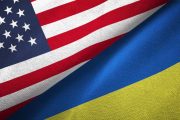As the beat of the war drums reaches its crescendo, one former lawmaker warns that any attack on Syrian government forces will make the United States the ally of al-Qaeda.
In an interview with The Hill, former congressman Dennis Kucinich (D-Ohio) said that should President Obama green-light an air strike in Syria, the U.S. military would “become Al Qaeda’s air force.”
“This is a very, very serious matter that has broad implications internationally. And to try to minimize it by saying we’re just going to have a ‘targeted strike’ — that’s an act of war. It’s not anything to be trifled with,” Kucinich said, as quoted in The Hill.
President Obama said Friday that if he approved a U.S. military strike on Syria, it would be “narrow” and “limited.”
Kucinich’s comments are similar to those made on Capitol Hill by Senator Rand Paul (R-Ky.) earlier this year.
“This is an important moment. You will be funding, today, the allies of al Qaeda,” Paul said during a hearing in May of the Senate Foreign Relations Committee. Paul’s comments were directed at his colleagues, nearly all of whom voted to send arms to Syrian rebels.
Senators Robert Menendez (D-N.J.) and Bob Corker (R-Tenn.) co-sponsored the bill that authorizes “critical support to the Syrian opposition through provision of military assistance, training, and additional humanitarian support.”
The bill sailed through the committee, passing with bipartisan support by a vote of 15-3.
Senator Paul offered two amendments to the bill — officially styled the Syria Transition Support Act — one that would have forbidden the transfer of weapons to the rebel forces fighting to oust the government of current Syrian president Bashar al-Assad, and another that would have prevented the use of U.S. military armed forces in Syria.
Both of Paul’s amendments were rejected by the committee.
Kucinich also insisted that any military action taken by the president without the consent of Congress would violate the Constitution and the power to wage war granted exclusively to the legislative branch in Article I.
The libertarian-leaning Democrat is a frequent flyer in the flock of doves opposing unjustified waging of war. As reported by The Hill:
Kucinich retired last year after 16 years in the House when his Cleveland district was redrawn and he lost his primary. He led the fight against President George W. Bush’s invasion of Iraq and joined nine other lawmakers in suing Obama over his intervention in Libya two years ago.
Following the Bush playbook developed in advance of the war against the Saddam Hussein regime in Iraq, President Obama has trotted out key members of his administration to make the case for combat.
In his speech Friday delivered from the State Department, Kerry claimed:
But still, in order to protect sources and methods, some of what we know will only be released to members of Congress, the representatives of the American people. That means that some things we do know, we can’t talk about publicly.
So what do we really know that we can talk about?
Well, we know that the Assad regime has the largest chemical weapons programs in the entire Middle East. We know that the regime has used those weapons multiple times this year, and has used them on a smaller scale but still it has used them against its own people, including not very far from where last Wednesday’s attack happened.
We know that the regime was specifically determined to rid the Damascus suburbs of the opposition, and it was frustrated that it hadn’t succeeded in doing so.
Readers will remember a speech containing similar certainties — including the claim that some evidence was too secret to divulge — delivered by Collin Powell in February 2003 to the United Nations Security Council:
I cannot tell you everything that we know. But what I can share with you, when combined with what all of us have learned over the years, is deeply troubling.
What you will see is an accumulation of facts and disturbing patterns of behavior. The facts on Iraqis’ behavior — Iraq’s behavior demonstrates that Saddam Hussein and his regime have made no effort — no effort — to disarm as required by the international community. Indeed, the facts and Iraq’s behavior show that Saddam Hussein and his regime are concealing their efforts to produce more weapons of mass destruction.
Just as he did in 2003, Kucinich calls Kerry’s declaration of facts nothing more than a “pretext,” adding that “the verdict is in before the facts have been gathered.”
There are so many problems with the imminent U.S. war in Syria, it is difficult to rank them in order. Any enumeration, however, would include the president’s usurpation of powers given exclusively to the representatives of the people.
Second, there is the unabashed “Iraq 2.0” approach to the attack. Chemical weapons, the claim of attacks on innocents, and the secret evidence of the atrocities that can’t be shared with the American people.
Finally, there is a very important aspect of the situation that is not being discussed by the mainstream media.
On December 31, 2011, President Obama signed into law the National Defense Authorization Act (NDAA). This “law” purportedly authorized the president of the United States to deploy the armed forces to apprehend and indefinitely detain anyone suspected of providing support to terrorists. Section 1021 of the NDAA reads in relevant part:
Congress affirms that the authority of the President to use all necessary and appropriate force pursuant to the Authorization for Use of Military Force (Public Law 107-40; 50 U.S.C.1541 note) includes the authority for the Armed Forces of the United States to detain covered persons (as defined in subsection (b)) pending disposition under the law of war.
A “covered person” under this section is any person as follows:
A person who was a part of or substantially supported al-Qaeda, the Taliban, or associated forces that are engaged in hostilities against the United States or its coalition partners, including any person who has committed a belligerent act or has directly supported such hostilities in aid of such enemy forces.
And, finally:
“Detention under the law of war without trial until the end of the hostilities authorized by the Authorization for Use of Military Force.”
A plain reading of Section 1021 reveals, then, that anyone who is found to have “substantially supported” al-Qaeda or associated forces can be detained by the military until the end of the War on Terror. Now, the relevant question becomes: Has President Obama substantially supported al-Qaeda and if so, how?
To begin our inquiry, let’s take a look at an article published last year by Reuters. In this article dated August 1 detailing a secret order signed by President Obama providing support to Syrian rebel forces opposing the regime of Bashar al-Assad, Reuters writes that “Recent news reports from the region have suggested that the influence and numbers of Islamist militants, some of them connected to al Qaeda or its affiliates, have been growing among Assad’s opponents.”
The next day, The New American’s Alex Newman covered the same story, writing that: “…Western governments, brutal Sunni-Arab dictatorships, an assortment of terror groups including al-Qaeda, and other powerful interests have all been backing the uprising since long before violence even broke out last year.”
Later that same day, in a story covering the violence of the Syrian uprising, the BBC reported:
The al-Qaeda-styled group in Syria is Jabhat al-Nusra li-Ahl al-Sham (the Front for the Protection of the Syrian People).
Like other al-Qaeda affiliated groups, al-Nusra’s statements and videos are usually issued by its own media group, al-Manara al-Baida (the White Minaret) in Syria.
Al-Nusra has claimed responsibility for several attacks against the Syrian army, security and shabiha (state-sponsored thugs) since it announced its formation early this year.
Finally, under a headline reading “Al-Qaida turns tide for rebels in battle for eastern Syria,” The Guardian (U.K.) reports:
They try to hide their presence. “Some people are worried about carrying the [black] flags,” said Abu Khuder. “They fear America will come and fight us. So we fight in secret. Why give Bashar and the west a pretext?” But their existence is common knowledge in Mohassen. Even passers-by joke with the men about car bombs and IEDs [improvised explosive devices].
According to Abu Khuder, his men are working closely with the military council that commands the Free Syrian Army brigades in the region. “We meet almost every day,” he said. “We have clear instructions from our [al-Qaida] leadership that if the FSA need our help we should give it. We help them with IEDs and car bombs. Our main talent is in the bombing operations.” Abu Khuder’s men had a lot of experience in bomb-making from Iraq and elsewhere, he added.
The foregoing accounts of the hostilities in Syria provide nearly irrefutable evidence that numerous al-Qaeda militants are found among the ranks of Syrian rebels (particularly within the Free Syrian Army), including among those filling leadership roles within those forces.
Given such impressive evidence of the presence of known al-Qaeda operatives in the leadership of the Syrian opposition, would President Obama (and Secretary John Kerry and any congressman who votes in favor of military intervention in Syria) not be in direct violation of the NDAA? And, if guilty of aiding and abetting this codified enemy of the state, would those same people not be liable for indefinite detention under applicable provisions of that act?
Americans who review this evidence and believe it is compelling should communicate this to their elected federal representatives in advance of any armed activity in Syria.
Photo: U.S. Air Force
Joe A. Wolverton, II, J.D. is a correspondent for The New American and travels frequently nationwide speaking on topics of nullification, the NDAA, and the surveillance state. He can be reached at [email protected]




